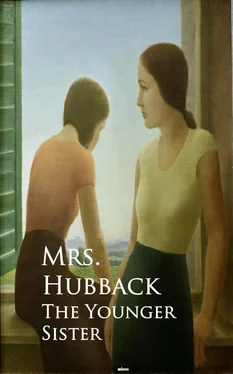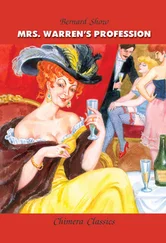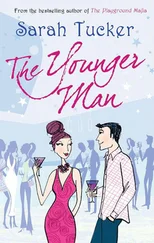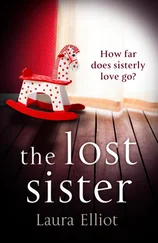universally
agreeable."
"Alas you discourage my young ambition; if to be universally agreeable is to be hated by you, I shall leave forthwith my attempts at pleasing. To how many individuals is it allowable to be friendly? to how many cold? to how many repulsive in order to win your good opinion."
"Impossible for me to answer without more data for my calculations. You must tell me, to begin with, how many you have been in the habit of flattering daily!"
"None, I assure you—there is not a more sincere creature under the sun."
"I do not quite believe you—but if you will not own to that—with how many do you consider yourself a particular favorite."
"That is an artful question—you wish to prove me guilty of general agreeableness—but my native modesty stands my friend there: I do not think more than two thirds of my acquaintance consider me a very charming fellow—amongst ladies, I mean—of course, a man's opinion goes for nothing."
"Ah, that is too many by half to please me—if you had always spoken with sincerity, depend upon it your particular admirers would be less numerous."
"But seriously, Miss Watson, why do you feel a particular enmity to the general favorites of your sex!"
"Seriously then, because I mistrust them."
"You think then truth must be sacrificed to popularity? Is not that rather a severe reflection on the taste of other women."
"I did not mean it as such."
"I never knew any one who did not profess to hate flattery."
"Very likely—but I go a step farther—I dislike the flatterer."
"And by what scale do you measure, so as to form a correct decision—is your standard of your own merit so accurately settled, that you can instantly perceive truth from flattery, appropriating just so much of a compliment as you deserve, and rejecting the rest."
"I think, Mr. Howard, I am more inclined to decide on the value of compliments from the character of the giver, than from my own. If an individual either man or woman dares to say a disagreeable truth, I cannot suspect them of an agreeable falsehood. Or if they are as ready to praise the absent, as to compliment the present, then I listen with more complaisance."
"It is fortunate for some men that all young ladies are not like you; their stock of conversation would be reduced very low, if neither praises of the present nor abuse of the absent were tolerated."
"I differ from you, Mr. Howard. If no one would
listen
to slander much less evil would happen in the world; much unhappiness would be saved—much moral guilt would be avoided."
"True: call it by its right name—slander—and every one shrinks from it; the habit of softening down our expressions leads to much evil—a little scandal, nobody minds that."
"Most detestable of all is the flattery from mercenary motives. To see a man—a young man courting, flattering, cajoling a woman for her money—one to whom he would, were she poor, hardly deign to address a word—selling himself body and soul for gold—oh, it makes one shudder—it tempts me to unjust, harsh thoughts of the whole species. Hateful!"
Mr. Howard looked at his companion with considerable surprise. She certainly was using rather strong expressions, and evidently felt acutely what she was saying. As he, however, was perfectly ignorant of the circumstances of her aunt's marriage, and never for a moment thought of anything of the sort, an idea passed through his mind that she might allude to himself and Lady Osborne, for though he could not plead guilty to anything on his own part which deserved such condemnation, it was possible his conduct might appear in this light to her eyes. He did not stop to consider whether it was probable, or in accordance with her character to make such personal reflections, but fell into a reverie on the subject of his own manners, from which he was roused by her addressing him again.
"I am quite ashamed, Mr. Howard, of having spoken so bitterly just now—pray forget what I said if possible—at least do not decide on my being a very ill-natured person because I spoke harshly—there are sometimes circumstances on which to reflect invariably creates unpleasant sensations—but the past is passed, and should not be allowed to awaken angry feelings."
"I fancy we have strayed a long way from the point which awakened these reflections," said Mr. Howard trying to recover himself likewise. "Tom Musgrove was the commencement of our dissertation on flattery."
"Mr. Musgrove—yes, so he was, but I had indeed forgotten it; my thoughts were many miles off—they had gone back many months."
"Your opinion of him does not seem very high," observed he, much relieved at the termination of her sentence.
"My opinion of him is of too little consequence to be worth discussing," replied Emma: "I have not seen a great deal of him, but I fancy my father does not estimate him very highly."
"But you cannot deny him the advantage of having plenty to say for himself."
"Plenty indeed—sufficient to make any discussion amongst others on that subject unnecessary."
"He is handsome too, in the opinion of most women."
"I do not deny it."
"And you know he has a very comfortable independence."
"On that point, Mr. Howard, I feel incredulous: independence is the very thing he wants. His principal object seems to be to follow another."
"I see you are hardened against him."
"You think me prejudiced, no doubt."
"I have no wish to combat your prejudice, or persuade you into liking him against your will."
A pause ensued, when Emma suddenly starting from her reverie, exclaimed,
"It is almost dusk—we must really return home."
"True, we can come again another day; I am sure you may come whenever you feel disposed—I shall be most happy to escort you."
At this moment the door was thrown back, and Lord Osborne himself appeared. After paying his compliments, he paused a moment, and then observed,
"You must have a precious strong taste for pictures, Miss Watson, to like to remain in the gallery even when it is too dark to see. I suppose breathing the same air is pleasant to those who value the art."
"We have stayed longer than we intended, my lord," said Emma; "and I really feel much obliged to your sister for allowing me such a pleasure; but we expected her to join us."
"It's a mighty fine thing to have such a lot of fine pictures, with all the fine names tacked on to them. One or two I really like myself—there's one of some horses, by somebody, excellent—and a Dutch painting of dead game, which is so like you would really think them all alive. Did you notice it?"
"Not particularly—I do not care much for still life."
"Howard there knows all about them: he has the names and dates and all on the tip of his tongue. Don't you find it a deuced bore to listen to it?"
"On the contrary, I am much obliged to Mr. Howard for the information."
"Well I should be glad, for my part, of a piece of information: how the—I beg pardon—I mean how the wonder did I contrive to miss you as I was going down the straight path to the Parsonage."
"Because we did not come up the straight path, my lord."
"Well, on my honour, I just was surprised when I got there to hear you were gone—stole away in fact. 'Holloa! how can that be!' said I, 'I did not meet them—no indeed.' 'Did you not!' cried Mrs. Willis. 'Well deuce take it, that is extraordinary!'"
"Did she say so indeed," said Emma with exemplary gravity.
"I don't mean to say she used those very words—she thought them, though, I'm sure, by her look."
"But now, my lord, we must wish you good evening, or Mrs. Willis will be waiting for dinner; and though I am not afraid of her swearing at us, I do not wish to annoy her."
"Ah, yes, Mrs. Willis is mistress—I know—the Parson there, like myself, is under petticoat government; nothing like a mother or sister to keep one in order. I'll be bound a wife is nothing to it. One cannot get away from a sister, and one can't make her quiet and obedient—you see she has never undertaken anything of the kind, as I understand wives do when one marries them."
Читать дальше












